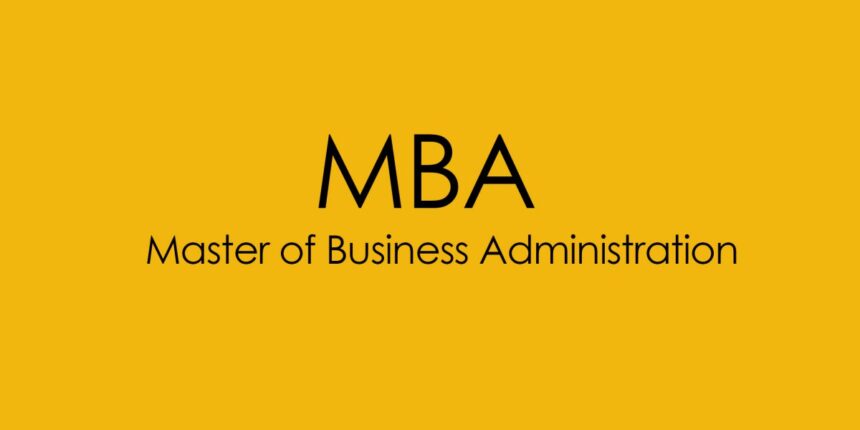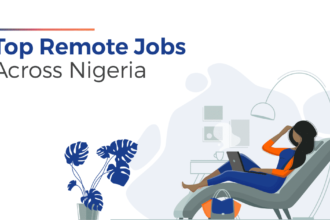Should Nigerians Still Pursue MBAs in 2025?
Should I go for an MBA? With the economy doing its usual dance of ups and downs, naira fluctuations, and AI taking over jobs left and right, it’s a fair question. Back in the day, an MBA was like a golden ticket to the big leagues, but is it still worth the sweat, time, and cash today? Let’s dive in casually and break it down, no fluff, just real talk for ambitious folks like you.
- Should Nigerians Still Pursue MBAs in 2025?
- The Evolving Job Market in Nigeria: What’s Changed by 2025?
- Pros of Pursuing an MBA in Nigeria in 2025
- Cons to Consider: The Flip Side of the MBA Coin
- Alternatives to Traditional MBAs: Smarter Paths for Nigerians
- Factors to Weigh Before Deciding on an MBA in 2025
- Check out: 10 Career Opportunities in Health Education
- Conclusion: Is an MBA Still Worth It for Nigerians in 2025?
The Evolving Job Market in Nigeria: What’s Changed by 2025?
Nigeria’s job scene in 2025 is a mixed bag. On one hand, we’ve got booming sectors like tech, fintech, and renewable energy, thanks to outfits like Paystack and Andela leading the charge. But let’s be real – unemployment is still hovering around 33%, and inflation isn’t doing us any favors. An MBA used to scream “executive material,” but now employers are eyeing practical skills over fancy degrees.
According to recent insights, the global MBA job market is rebounding, with companies hiring 92% of grads in fields like consulting and finance. In Nigeria specifically, MBA holders can expect salaries around $2,000 annually on average – that’s about 80% higher than the national average wage. Yet, with remote work and online learning exploding, traditional MBAs face stiff competition from quicker, cheaper options. Think about it: Is that two-year program still the boss move, or are we in an era where certifications rule?
Pros of Pursuing an MBA in Nigeria in 2025
Alright, let’s not throw the baby out with the bathwater. An MBA can still pack a punch if it fits your vibe. Here are some solid upsides:
- Career Boost and Networking Goldmine: An MBA opens doors to higher roles in banking, oil & gas, or startups. Programs like those at Lagos Business School or international ones via scholarships connect you with heavy hitters. Many grads land in consulting or management, where base salaries can hit $132,000 globally – though in Naija, it’s more modest but still a leap.
- Skill Upgrade for the Future: You’ll dive into leadership, strategy, and data analytics – stuff that’s hot in 2025’s AI-driven world. Nigerian MBA programs are adapting, with focuses on entrepreneurship and sustainable business, perfect for our growing economy.
- Salary and Status Bump: Stats show MBA grads earn more long-term. In Nigeria, it’s not just the pay; it’s the prestige that can fast-track promotions in multinationals like Unilever or MTN.
- Global Edge: More Nigerians are flocking to U.S. or European MBAs, with applications from Africa surging. This can lead to international gigs or even relocation – a big win if you’re eyeing greener pastures.
If you’re in mid-career and stuck, an MBA could be that rocket fuel.
Cons to Consider: The Flip Side of the MBA Coin
But hold up – it’s not all rosy. Here’s the tea on why an MBA might not be your jam in 2025:
- High Costs and Opportunity Lost: Tuition at top Nigerian schools like Lagos Business School can run into millions of naira, plus living expenses. Add student loans or time off work, and the ROI might take years to show. With economic uncertainties, is it worth the debt?
- No Job Guarantees: The job market is brutal. Even with an MBA, you might end up underemployed if your network isn’t strong. Trends show that while 91% of global grads find jobs quickly, in Nigeria, it’s trickier due to saturation in fields like finance.
- Time Drain: Full-time programs eat up 1-2 years. In a fast-moving world, you could be learning on the job or via short courses instead. Plus, online MBAs, while flexible, sometimes lack the “prestige” factor.
- Overemphasis on Theory: Some argue MBAs are becoming “box-ticking” exercises, especially with AI handling routine tasks. If you’re entrepreneurial, real-world hustling might teach you more than classrooms.
In short, if you’re not strategic, an MBA could feel like an expensive detour.
Alternatives to Traditional MBAs: Smarter Paths for Nigerians
Who says MBA is the only way? In 2025, Nigeria’s education landscape offers plenty of alternatives that are faster, cheaper, and just as impactful:
- Professional Certifications: Go for CFA, PMP, or Google Data Analytics certs. They’re affordable (under N500,000 often) and directly boost your CV for roles in finance or project management.
- Master’s in Specialized Fields: Opt for an MSc in Business & Data Analytics or Health Care Management – these are among Nigeria’s highest-paying master’s, with starting salaries rivaling MBAs. Schools like Nexford University offer online options tailored for Nigerians.
- Online Platforms and Short Courses: Platforms like Coursera or edX have MBA-like programs from Ivy Leagues for a fraction of the cost. Think nano-degrees in fintech or entrepreneurship – perfect for our startup boom.
- Executive Education: Programs at places like the Executive Business School or West Africa Business School provide bite-sized learning without full commitment.
These options let you upskill while working, avoiding the full MBA grind.
Factors to Weigh Before Deciding on an MBA in 2025
Before you apply, ask yourself:
- Your Career Goals: If you’re aiming for C-suite in a corporate giant, yes. For startups or freelancing, maybe not.
- Financial Situation: Calculate ROI – use tools to project salary increases vs. costs. In Nigeria, factor in forex rates if studying abroad.
- Learning Style: Prefer flexibility? Online MBAs are rising. Want networks? Go traditional.
- Market Trends: With Africa’s business schools like those in Nigeria gaining traction, local options might suffice over pricey international ones.
Chat with alumni or career coaches for personalized advice.
Check out: 10 Career Opportunities in Health Education
Conclusion: Is an MBA Still Worth It for Nigerians in 2025?
At the end of the day, whether to pursue an MBA in 2025 boils down to you. If it aligns with your goals, boosts your skills, and the math adds up – go for it! It can still be a game-changer, offering higher earnings and global opportunities. But if the cons outweigh the pros, explore alternatives like certifications or specialized master’s – they’re often more practical in our dynamic economy.
What do you think? Drop your thoughts in the comments, and if you’re on the fence, start with free online courses to test the waters. Here’s to smarter career moves in 2025 – naija no dey carry last!
Image source: bpcbirgunj.edu.np






